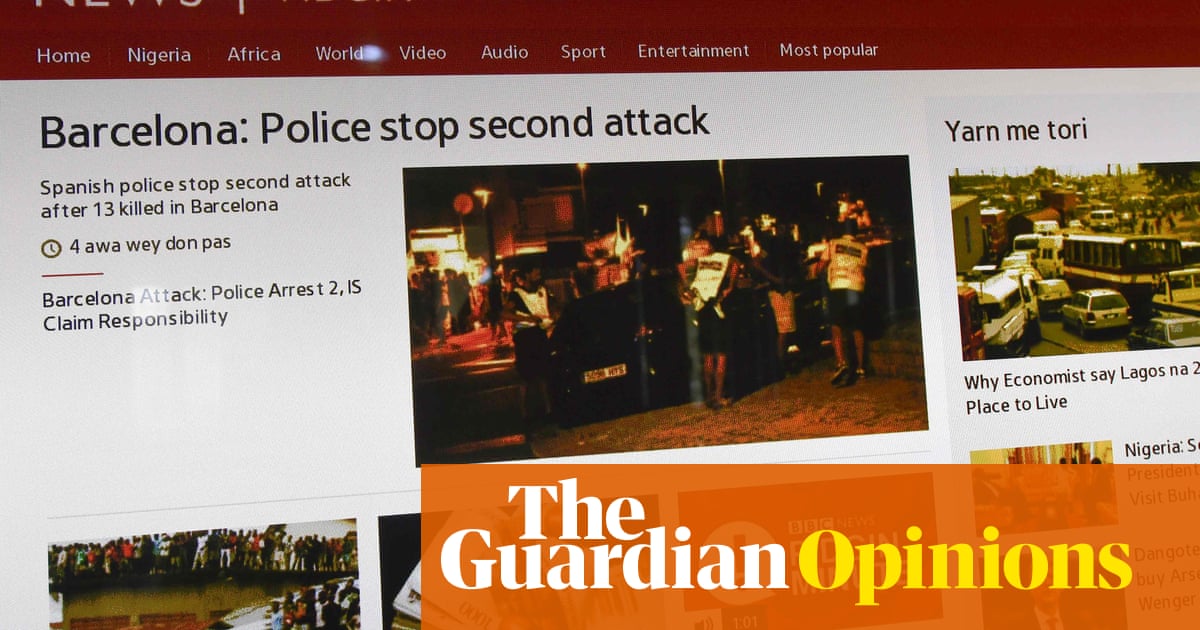In a short space of time, the British government has made two decisions that will negatively affect the lives and livelihoods of millions of people around the world. The first was the severe cut in foreign aidannounced in March. The second was the similarly severe reduction in Foreign Office support for theBBC World Service. And these from a supposedly progressive government. It doesn’t seem progressive to me, but cheap and reactionary.
I have double interest to declare. I am a long-term BBC loyalist who served the corporation for more than 30 years in the unquiet corners of the world, from Vietnam to Bosnia and from Belfast to Angola. My loyalty survived even such daft editorial decisions as to give aninterview with Prince Harryprecedence over real news. (That was little more than 10 days ago.) I have also been an MP. And since I left the House of Commons in 2001, I have served as a goodwill ambassador for Unicef UK, the British national committee of the UN children’s emergency fund. It introduced me to still more war zones, in Africa and the Gulf.
It was in that capacity that I fully endorsed Unicef’s objections to the decision on foreign aid.We wrote at the time: “Now is not the time to break our promise to the world’s poorest and most vulnerable. Millions of children globally rely on UK aid to survive and have never needed it more.” We asked the government to rethink and to retract. It has not yet done so.
The effect of the BBC cuts, to a service that wasalready due to cut 130 jobsthis year, is harder to quantify. They reflect the unique and ambiguous position of the corporation itself. It is not by any means a governmental organisation, but its World Service is – or has been until now – largely subsidised by the Foreign Office as a projection of British interests, values and soft power. I have no problem with that: it is my opinion that Foreign Office resources were never better spent. But all this is now in jeopardy, along with the surviving language services. It is hard to see what will remain but a shadow and skeleton of what the World Service used to be.
And consider the timing, which could hardly be worse. Agents of disinformation are spreading their toxins through the world. Where the BBC withdraws and its wavelengths grow weaker, all sorts of national and international malefactors are ready to move in – not with news but with propaganda. Even today, under siege at home and abroad, the BBC remains the world’s most trusted news organisation. Its American rival and former counterpart, the Voice of America, is beingput to the swordby a White House whose megaphone is the partisan Fox News. It is challenged at home by a so-called news channel that offers a floodtide of rightwing opinions.
The BBC’s director general, Tim Davie, speaks of a “borderline crisis in public service broadcasting” and he is better placed than anyone to know. Not only is the World Service at risk. So is the identity and survival of the national broadcaster – the model for so many others – as we have known and (dare I say?) loved it.
I find it paradoxical, having risked my life for the BBC in so many war zones, that its World Service’s funding is apparently at risk of being confiscated, among other sources, to pay for an increase in defence spending. Having served so effectively during the old cold war, it is now to be the casualty of a new one. I sense that we are living in the most dangerous times since Hiroshima and Nagasaki in 1945. You may argue that we need sharper swords and fewer ploughshares. I would reply that, more than ever, to make sensible decisions we need trustworthy sources of information. So do the people of Russia, China, Ukraine and India, among others. This is the point of the BBC: the truth is its currency.
Wherever I travelled as a foreign correspondent, in times when communication was technically more difficult, I would find my colleagues from other countries crouched over their shortwave radios to find out what was going on around them and elsewhere. And what were they listening to? It was never Moscow. It was occasionally Radio Free Europe. It was usually the BBC.
And would we willingly let this go? I hope and believe not. And I urge the government to think again.
But I also believe this: once we have relinquished it, we shall never get it back.
Martin Bell is a Unicef UK ambassador. He is a former broadcast war reporter, and was the independent MP for Tatton from 1997 to 2001
